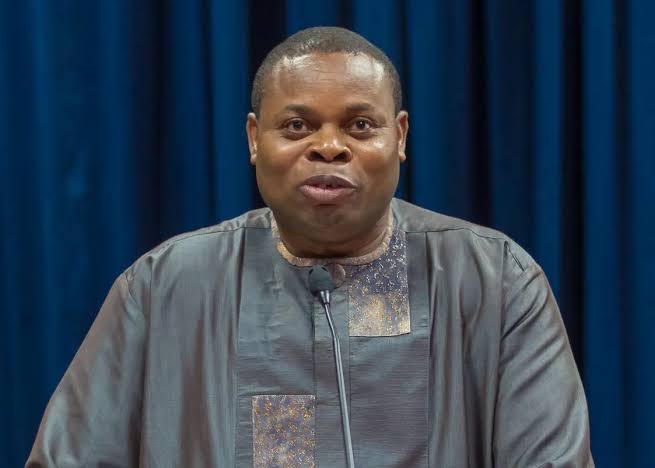Franklin Cudjoe’s critique of Dr. Mahamudu Bawumia and the New Patriotic Party (NPP) centers on their delayed acknowledgement of the government’s shortcomings, which he believes significantly contributed to their resounding defeat in the 2024 elections. Cudjoe contends that Bawumia’s post-election confession, while a step in the right direction, came too late to mitigate the damage. He argues that had Bawumia heeded the advice of himself and the Asantehene to address these issues during the campaign, the electoral outcome might have been less devastating. Cudjoe’s disappointment stems from the missed opportunity to demonstrate leadership by taking responsibility and addressing the concerns of the electorate before the election. He sees Bawumia’s post-election admission as a belated “confession” rather than a genuine act of leadership.
Cudjoe’s pointed remarks highlight a critical leadership flaw: the failure to acknowledge and address failures in a timely manner. He emphasizes that genuine leadership involves confronting challenges head-on, taking responsibility for shortcomings, and proactively seeking solutions. Waiting until after the damage is done, in Cudjoe’s view, diminishes the impact of any subsequent admissions of guilt or responsibility. The timing of Bawumia’s acknowledgement, coming after the electorate had delivered their verdict, renders it less meaningful and more akin to a forced admission rather than a proactive display of leadership. This delayed response, according to Cudjoe, undermined the NPP’s credibility and contributed to the severity of their electoral loss.
The “scales of self-denial,” as Cudjoe puts it, blinded Bawumia and the NPP to the reality of their situation. This self-deception prevented them from effectively addressing the public’s concerns and ultimately cost them dearly at the polls. By ignoring the warning signs and failing to engage with the public’s grievances, the NPP further alienated the electorate, exacerbating the already growing dissatisfaction. This disconnect between the government and the governed, fueled by the NPP’s denial of their failings, ultimately sealed their fate in the 2024 elections. Cudjoe’s criticism underscores the importance of self-awareness and the ability to critically assess one’s own performance, especially in positions of leadership.
Cudjoe’s reference to the “vaunted Mike Mike Gabo Oquaye report” adds another layer of criticism. This report, presumably commissioned to assess the party’s performance and identify areas for improvement, appears to have been disregarded by the NPP leadership. Cudjoe’s lament over the “waste of time” suggests that the report’s findings, likely highlighting the same issues Bawumia later admitted to, were ignored. This disregard for internal assessment further reinforces Cudjoe’s argument about the NPP’s self-denial and their failure to proactively address their shortcomings. The dismissal of the Oquaye report, in Cudjoe’s view, represents a missed opportunity to course-correct and potentially avert the electoral disaster that followed.
Bawumia’s eventual acknowledgement of the factors contributing to the NPP’s defeat – including the government’s failure to listen to the people, the decision not to reshuffle ministers, the introduction of the e-levy, the arrogance of power, and the Domestic Debt Exchange Programme (DDEP) – validates Cudjoe’s earlier criticisms. These admissions, while belated, provide a glimpse into the internal issues that plagued the NPP government. The failure to listen to the concerns of the electorate, coupled with a perceived arrogance of power, created a chasm between the government and the governed. The unpopular e-levy and the controversial DDEP further exacerbated public discontent, contributing to the NPP’s electoral downfall.
The combination of these factors, as acknowledged by Bawumia, paints a picture of a government out of touch with the needs and concerns of its people. The refusal to reshuffle underperforming ministers, despite public outcry, signaled a resistance to change and a disregard for public opinion. This, coupled with the imposition of the e-levy and the implementation of the DDEP, further fueled public resentment and eroded trust in the NPP government. Cudjoe’s criticisms, therefore, are not merely post-election pronouncements but rather reflect a consistent call for accountability and responsive governance, a call that went unheeded by the NPP, ultimately leading to their electoral defeat.














